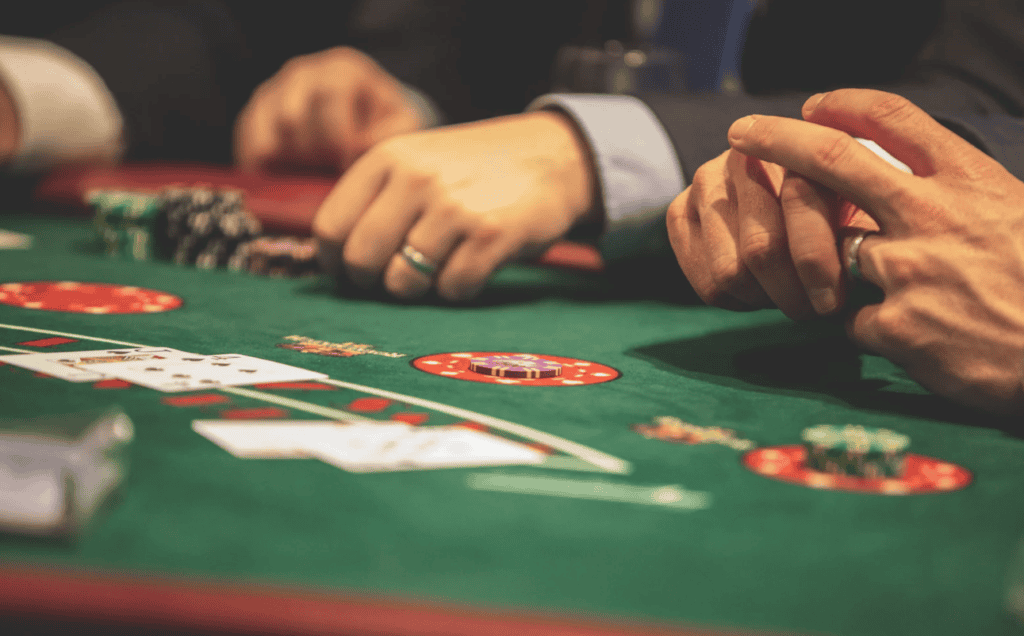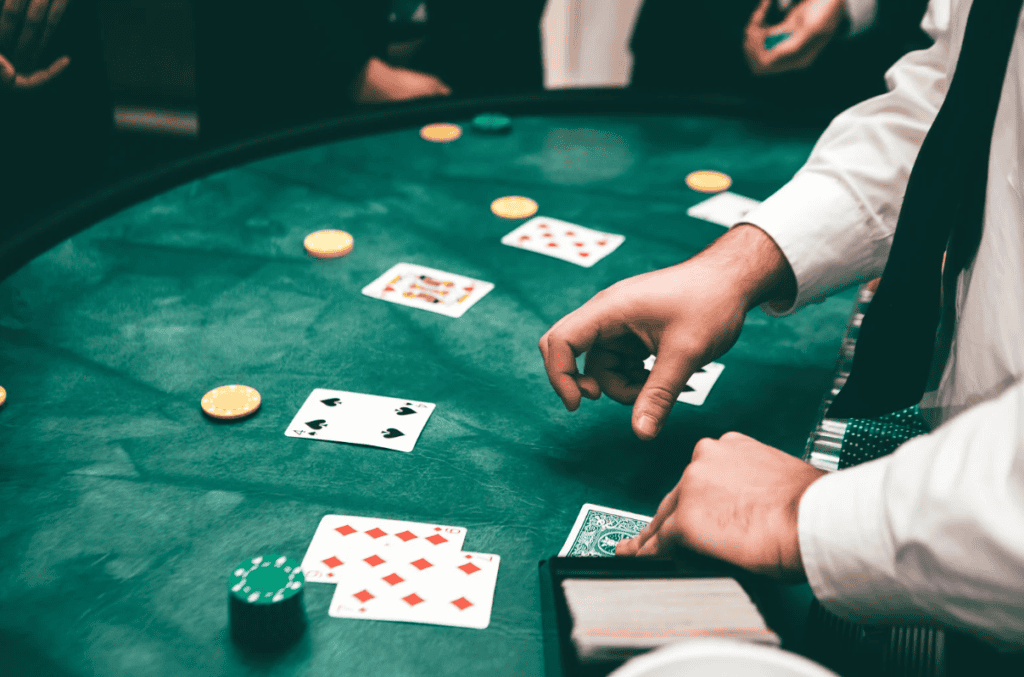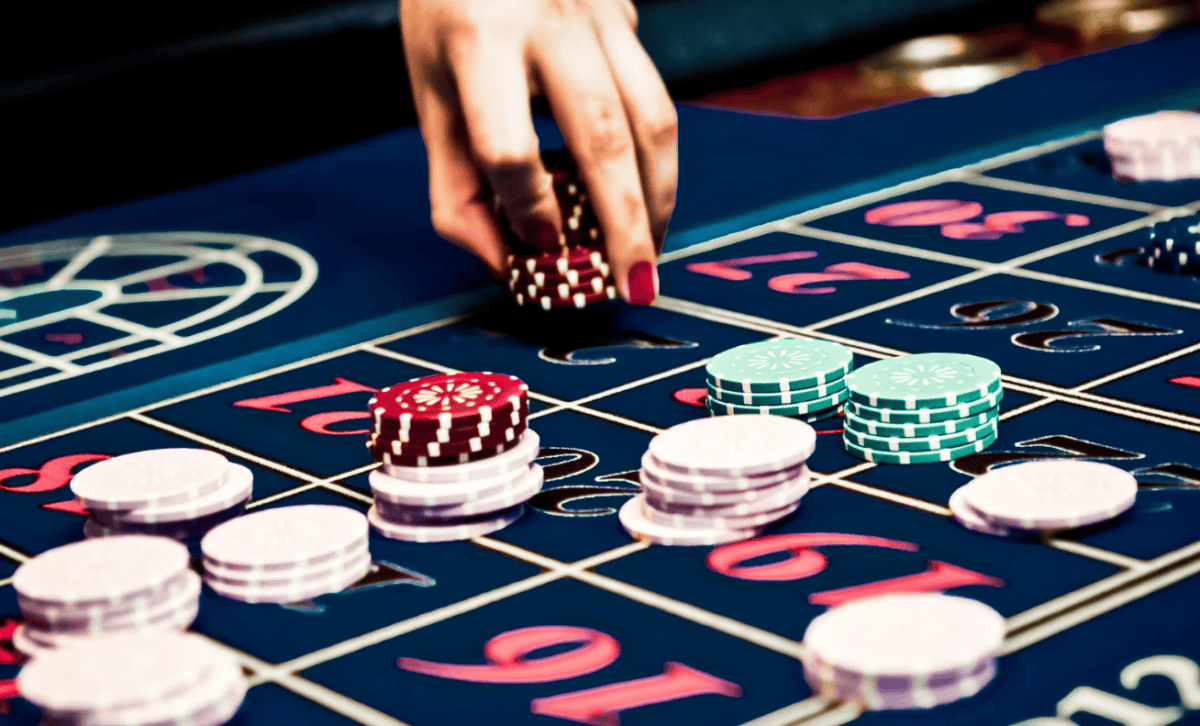Gambling thrives on the interplay of psychology and reward. While, yes, the potential for financial gain is undeniable, the main draw for many lies in the unique psychological experience it offers.
But, what exactly is the psychology of the gambler? Let’s delve into the psychology of the gambler or the mindset of those who chase the thrill of the win.
The Desire for Excitement and Reward
Whether trying your luck at roulette at a traditional casino or playing slots on a tablet, at its core, gambling taps into the human desire for excitement and the pursuit of reward. B.F. Skinner, known for his work on operant conditioning, theorized that behavior is shaped by its consequences.
In gambling, the potential for a large, unexpected reward (a big win) strengthens the behavior of placing a bet. This positive reinforcement fuels the excitement associated with gambling and begins to create a desire to replicate the experience.
Furthermore, gambling activates the brain’s reward system, specifically the dopamine pathways. Dopamine, often referred to as the “feel-good” chemical, is released in anticipation of a reward – not just upon receiving it. This explains the rush experienced by gamblers even when placing a bet, and not simply when they win. The anticipation itself becomes a source of pleasure, fueling the desire to keep going.

The Illusion of Control and Skill
Gambling can foster a powerfully potent sense of control. While most games are based on chance, gamblers will often perceive themselves as having even the smallest degree of influence over the outcome. Take playing blackjack on mobile, for example.
According to gambling expert, Sergio Zammit, this is one of the most popular casino games out there, thanks to numerous welcome bonuses, choice, and quick withdrawals. You might think that when playing blackjack on the go, choosing to hit or stand on a particular hand somehow influences the next card dealt by the virtual dealer. Nope.
In reality, each card is dealt independently, completely unaffected by your previous choices. Likewise, when playing slots, you might think if you’ve been on a losing streak, the next spin will pay out. Again, this isn’t the case, as each spin is random and completely independent from the previous one.
This illusion of control can be further strengthened by the design of mobile gambling apps. You see, features like customizable avatars, leaderboards, and virtual rewards can create a sense of personalization and achievement, subtly suggesting that skill plays a role – even in games of complete chance.
This phenomenon, explored by social psychologist Langer, is known as the illusion of control. Gamblers may develop personal strategies, rituals, or “lucky” routines, believing they can influence the random nature of the game. This perceived control enhances the sense of accomplishment when a win occurs and fuels the desire to replicate successful strategies.
The Gambler’s Fallacy and the Near-Miss Effect
Cognitive biases also play a significant role in the gambler’s mindset. One such bias is the gambler’s fallacy; the mistaken belief that past events influence future outcomes in games of chance. For instance, a gambler on a losing streak might believe a win is “due” next. This fallacy can lead to increased bets or a refusal to quit, as the gambler persists in the heady pursuit of a “correction”.
Another cognitive bias, the near-miss effect, further reinforces the illusion of control. When a gambler narrowly misses a win, they experience a sense of “almost having it” which strengthens the belief that a win is indeed imminent. This near-miss fuels the desire to continue playing, as the gambler feels all-too-close to success.
Social Connection and Community
Gambling can also be a social activity that helps to foster a feeling of community and belonging. Casinos, even many online casinos, often create a jovial atmosphere, complete with shared experiences, cheering for others, and the camaraderie of shared risk. This social aspect can be a significant motivator for some gamblers – particularly those seeking connection.
The Positive Psychology of the Gambler
When approached responsibly, gambling can be a great source of:
- Healthy Risk-Taking: Taking calculated risks and experiencing the thrill of success can be a confidence booster and contribute to a sense of personal agency.
- Mental Acuity: Certain games of chance, like chess or poker, require strategic thinking and mental agility. Regularly engaging in these games can help maintain cognitive function.
- Stress Relief: The excitement and focus required during gambling can provide a temporary escape from daily stressors.
It’s important to consider how these psychological factors can be used to promote responsible gambling practices. Nudge theory, developed by Richard Thaler and Cass Sunstein, offers valuable insights. Nudge theory suggests that subtle changes in the environment can influence behavior without restricting choices.

Casinos and gambling establishments often use aspects of nudge theory to keep players engaged. Think about it: the use of chips instead of money creates a psychological distance from the actual value being gambled; this makes it so much easier to part with; the free drinks and extended play sessions can sometimes cloud judgment and encourage riskier than usual betting.
However, nudge theory can also be harnessed to healthy gambling. Here are some ways this can be achieved:
- Transparency and Awareness: Providing clear information about odds, win rates, and potential losses can counter the gambler’s fallacy and unrealistic expectations of winning.
- Setting Limits: Players should set spending limits to ensure they don’t go over budget.
- Focus on Entertainment: Shifting the focus from potential windfalls to the entertainment value of the games can help players approach gambling with a healthy mindset.
- Time Cues and Reality Checks: Displaying time spent playing or providing pop-up messages reminding players of the duration of their session can nudge them towards taking breaks.
Final Thoughts
It’s safe to say, the psychology of the gambler is complex. It involves the desire for excitement, the pursuit of reward, and the allure of perceived control. It’s a great idea for gamblers to be aware of their thinking processes, no matter how subtle, and how this can affect their enjoyment of the hobby.


